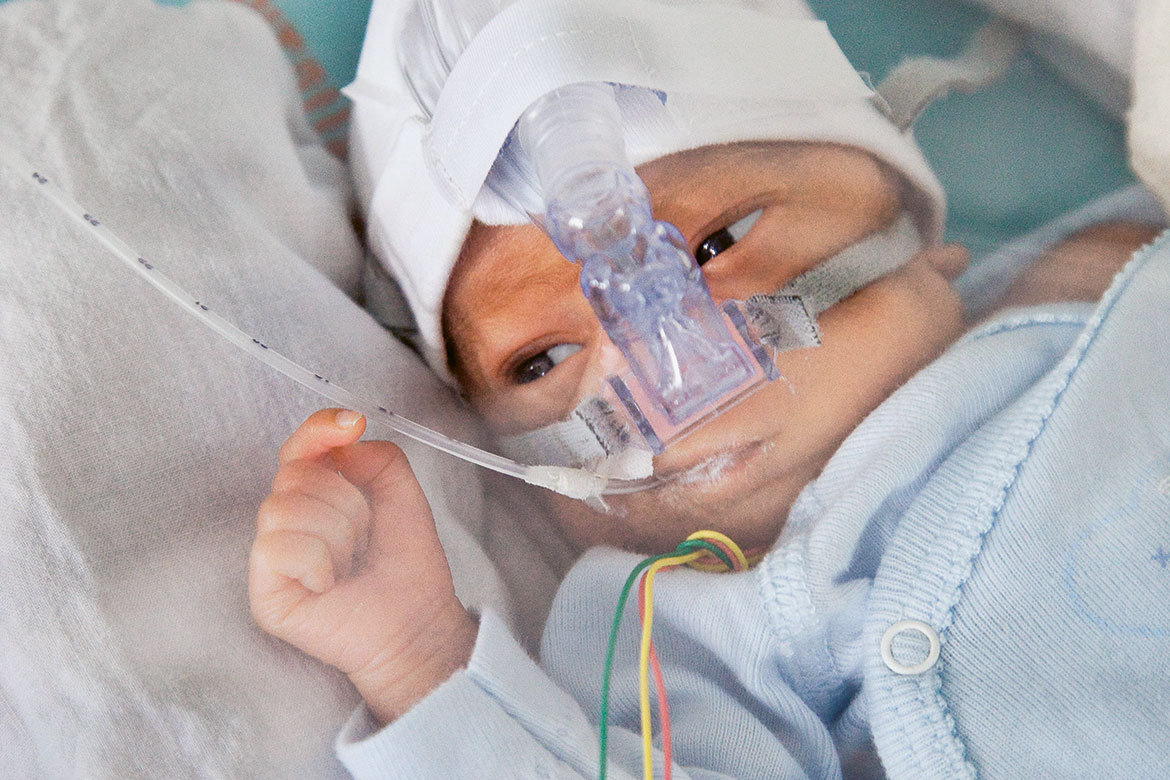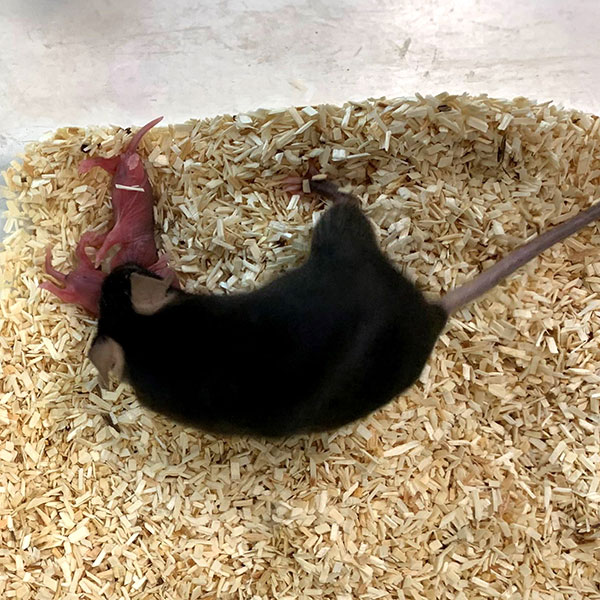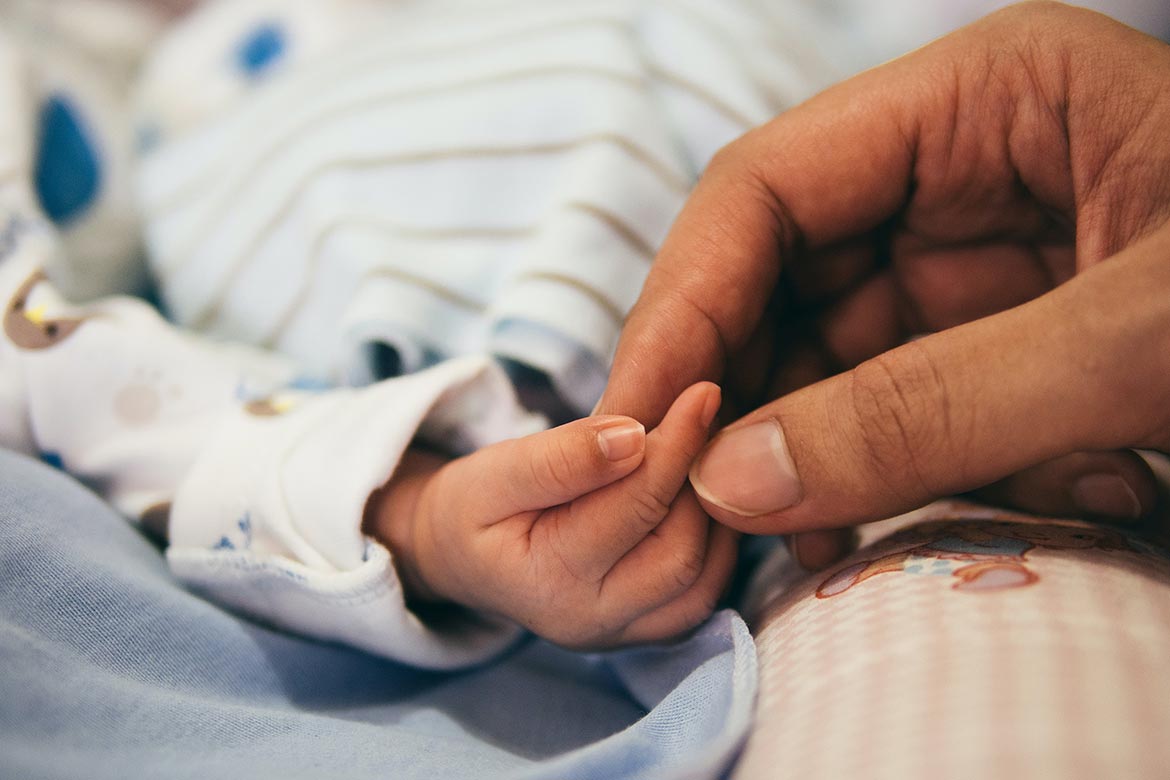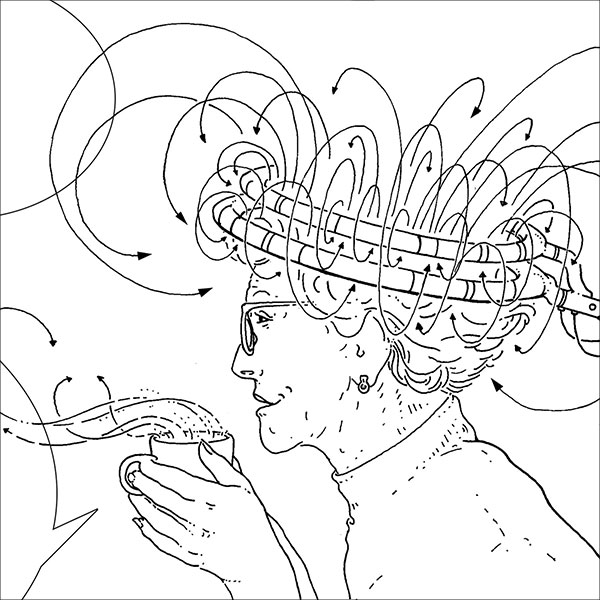More air for the premature
Immature lungs can be problematic for premature babies. Medical researchers are trying to find the best ways of avoiding later, negative consequences.

Premature babies can’t survive without artificial respiration, but this itself can also cause inflammation of the lung tissue. | Image: Keystone/Science Photo Library/Phanie /Voisin
Sometimes, a life starts just too soon. Instead of being able to mature fully in the womb, some babies arrive in the world several weeks before their due date. When this happens, it’s their lungs that are often least ready to cope, as they have to breathe in and out all the time. “These premature babies have a tough time of it at first”, says the paediatrician Sophie Yammine of Inselspital, the Bern University Hospital. Their respiratory tract is very small, as are their air sacs, which can easily collapse.
The lungs are one of the organs that only complete their development at an especially late date. The air sacs form between the 16th and the 27th weeks of pregnancy, and it’s only at the 29th week that efficient gas exchange is possible. This is why roughly a third of all highly premature babies – those born before the 28th week – suffer from a chronic lung disease called bronchopulmonary dysplasia (BPD). It has many causes, but is primarily triggered by artificial respiration using air with a high oxygen content. “These measures are often essential for the baby to survive, but they can lead to inflammation of the lung tissue”, says Yammine.
Just what the consequences can be for these children in later life is something she investigated in a study at the Inselspital. She looked at the lung function of 86 children of an average age of 9.5 years who had all been premature babies. In comparison to full-term babies, the ventilation function of their small airways had been damaged. The air sacs in which the gas exchange occurs were intact, however. This confirmed that the air sacs had continued to develop in their early years of life. “At least this part of their development is something in which premature babies catch up properly later”, says Urs Frey, a medical director at the University Children’s Hospital Basel, who took part in the study.
A new study is now running with the same children, who are meanwhile between 16 and 20 years old. Their lung function is again being measured, and Yammine would additionally like to take a closer look at their circulation using an MRI scanner. “It’s difficult to assess, which is why it rarely receives much attention. But in premature babies, their blood vessels suffer an interruption in their development, just like the structure of their lungs”.
Cautious respiration
It’s already known that children with BPD often contract infections more frequently in later life, and are probably going to spend more time in hospital. And in old age, they will likely also suffer more often from the lung diseases that doctors otherwise tend to observe in smokers. But the medics cannot predict the long-term consequences. This is not least because the circumstances that influence BPD have altered immensely in our time. In contrast to earlier years, babies can now survive a premature birth as early as the 23rd or 24th week of pregnancy. In other words, they are born with even less developed lungs.
But doctors also treat premature babies with even greater care today than used to be the case. Twenty years ago babies would often be put in respirators for a long time with a high concentration of oxygen. Doctors try to avoid this today. Instead, when a pregnant woman is in danger of premature birth, they give her cortisone to stimulate the production of a surfactant – substances that prevent the collapse of mature air sacs. Doctors can even also inject it into a baby’s trachea immediately after birth.
Further treatments are also being tested at present. Dirk Bassler is the director of the Neonatal Clinic at the Zurich University Hospital, and he has run a study of 863 extremely premature babies that proved how inhaling a cortisone-based preparation after birth could prevent the emergence of BPD. Bassler believes that the same might apply to injections with hydrocortisone: “But this needs to be confirmed in a large-scale, international study”. They need to make sure that they are helping children with their early start in life, not hindering them.




